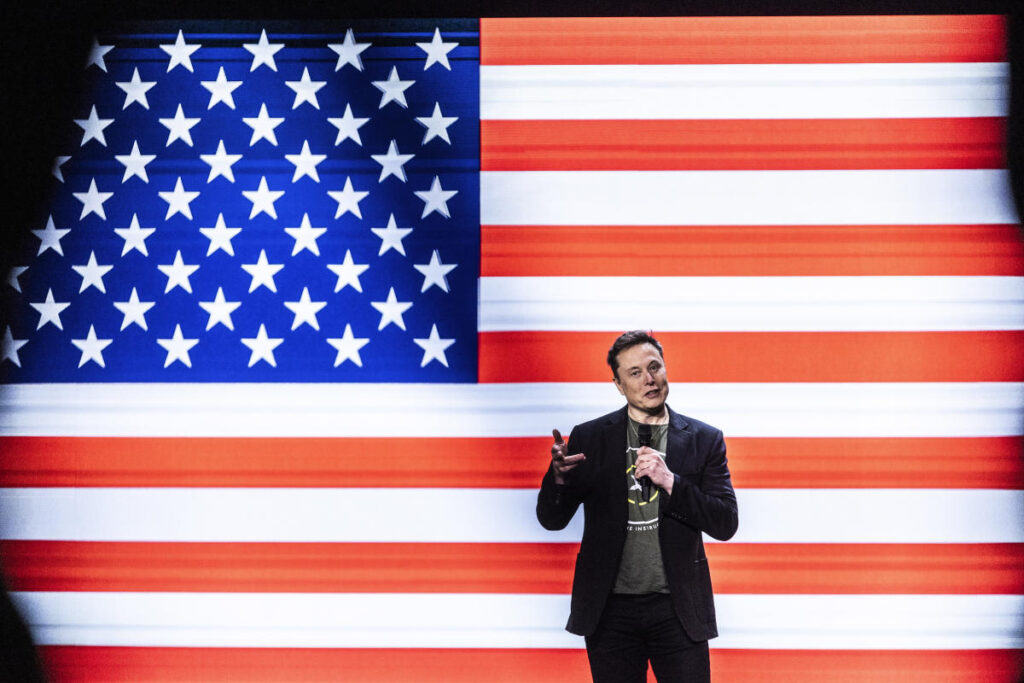Elon Musk, the prominent billionaire known for founding Tesla and SpaceX and currently owning the platform X (formerly Twitter), has made headlines with his strong support for Donald Trump’s candidacy for the U.S. presidency. Musk has significantly invested in Trump’s campaign, committing at least $70 million to aid the former president in his political ambitions. Recently, he has announced a controversial initiative involving a giveaway of $1 million to encourage voters to sign a petition backing his political action committee (PAC), which endorses constitutional rights and free speech. This initiative has sparked concerns among election law experts and political figures regarding its legality, particularly due to its conditions that tie cash handouts to voter registration status.
Musk’s fundraising scheme is specifically aimed at gathering support for both the First and Second Amendments of the U.S. Constitution, reflecting his stated commitment to free speech and gun rights. The announcement of the giveaway, which promises $1 million in total by Election Day on November 5, was publicly made during an event in Harrisburg, Pennsylvania, where Musk presented a check to an early participant. The day-to-day distribution of funds is seen as a tactic to garner public favor and mobilize voters in a crucial battleground state, highlighting Musk’s strategy of leveraging financial incentives to engage the electorate.
However, the practice of providing monetary incentives for petition signatures has drawn sharp criticism. Election law experts have raised alarms, suggesting that tying financial rewards to voter registration could violate laws designed to safeguard electoral integrity. They emphasize that while offering money for signing a petition without conditions may be legally permissible, adding requirements for voter registration shifts it into a legally gray area. Prominent election lawyers have pointed out that conditioning payments on a person’s registration status could be interpreted as unlawful because it implies a payment for a registration action rather than merely a petition endorsement.
As the situation unfolds, political analysts are closely examining Musk’s actions and their implications for the electoral process. Critics, including Pennsylvania’s Democratic Governor Josh Shapiro, have voiced their concerns not only regarding Musk’s distribution of funds but also about the broader impact of dark money in political races. Shapiro’s worries about the potential misuse of funds underscore a growing scrutiny surrounding the influence of wealthy donors on American democracy and the integrity of electoral practices. Election experts have voiced that the timing of Musk’s initiative, given its proximity to the election, reinforces apprehensions about its intention to incentivize voter registration, blurring the lines between lawful campaigning and illicit vote-buying operations.
The Musk PAC, in pursuit of a larger voter base for Trump, has already attracted attention through previous cash offers to incentivize sign-ups. This strategy exemplifies Musk’s proactive, albeit controversial, approach to rallying support and mobilizing voters. As concerns rise over the legality of his actions, several legal scholars are debating the line between permissible campaign practices and those that might be construed as coercive or manipulative. Some argue that past Supreme Court rulings have upheld certain types of political incentives, although the specific nature and terms of this giveaway appear to complicate the narrative.
Additionally, the relationship between Musk’s PAC and Trump’s campaign raises questions about regulatory boundaries and permissible collaboration. Historically, coordination between political candidates and super PACs has been largely restricted, but new opinions from the Federal Election Commission suggest that under specific circumstances, such as voter outreach efforts, these restrictions could be loosened. This evolving regulatory landscape could potentially complicate how election laws are interpreted in the context of innovative and unconventional campaign strategies, including those employed by figures like Musk. The implications of Musk’s actions and the ensuing legal debates have the potential to shape future electoral practices and campaign finance regulations.

